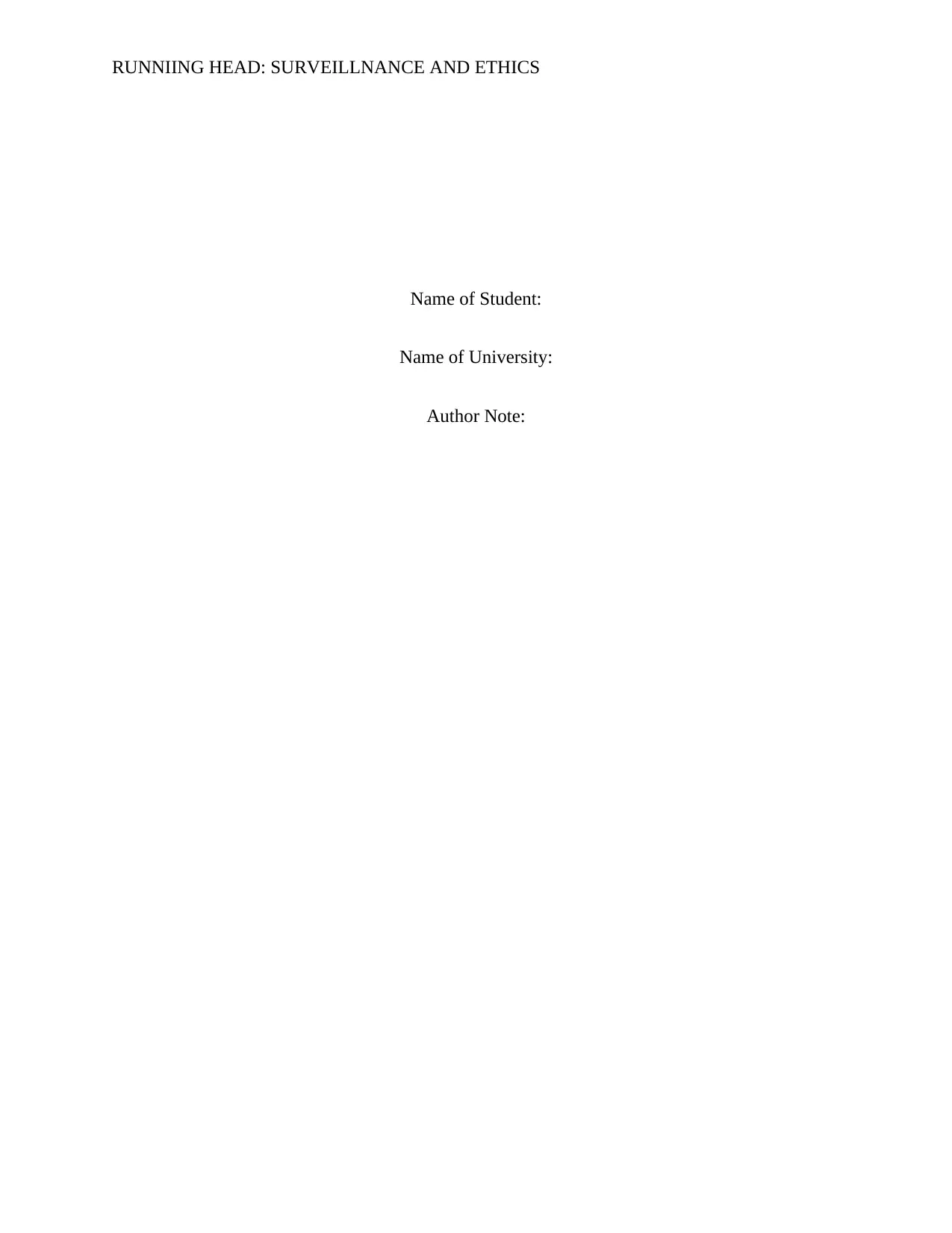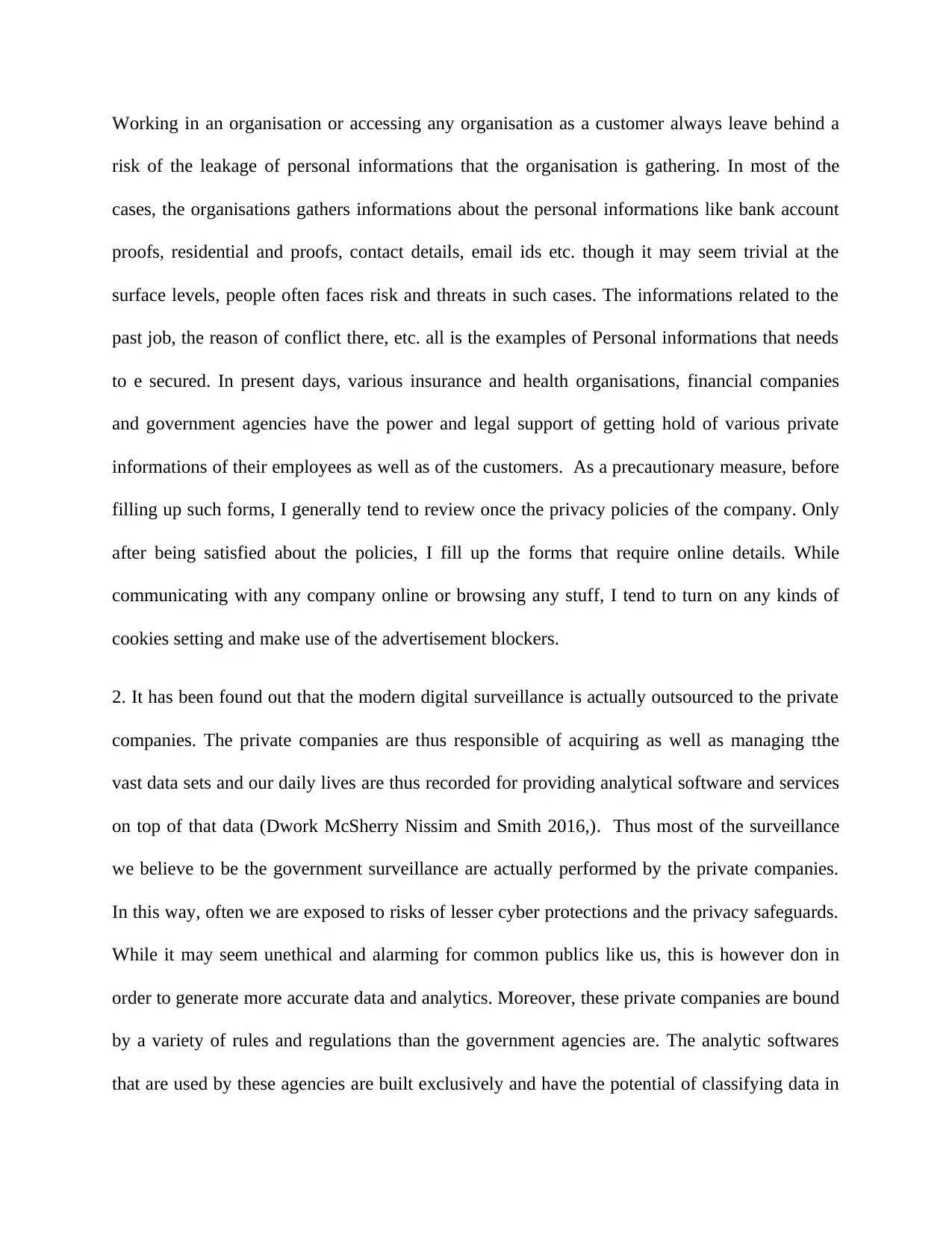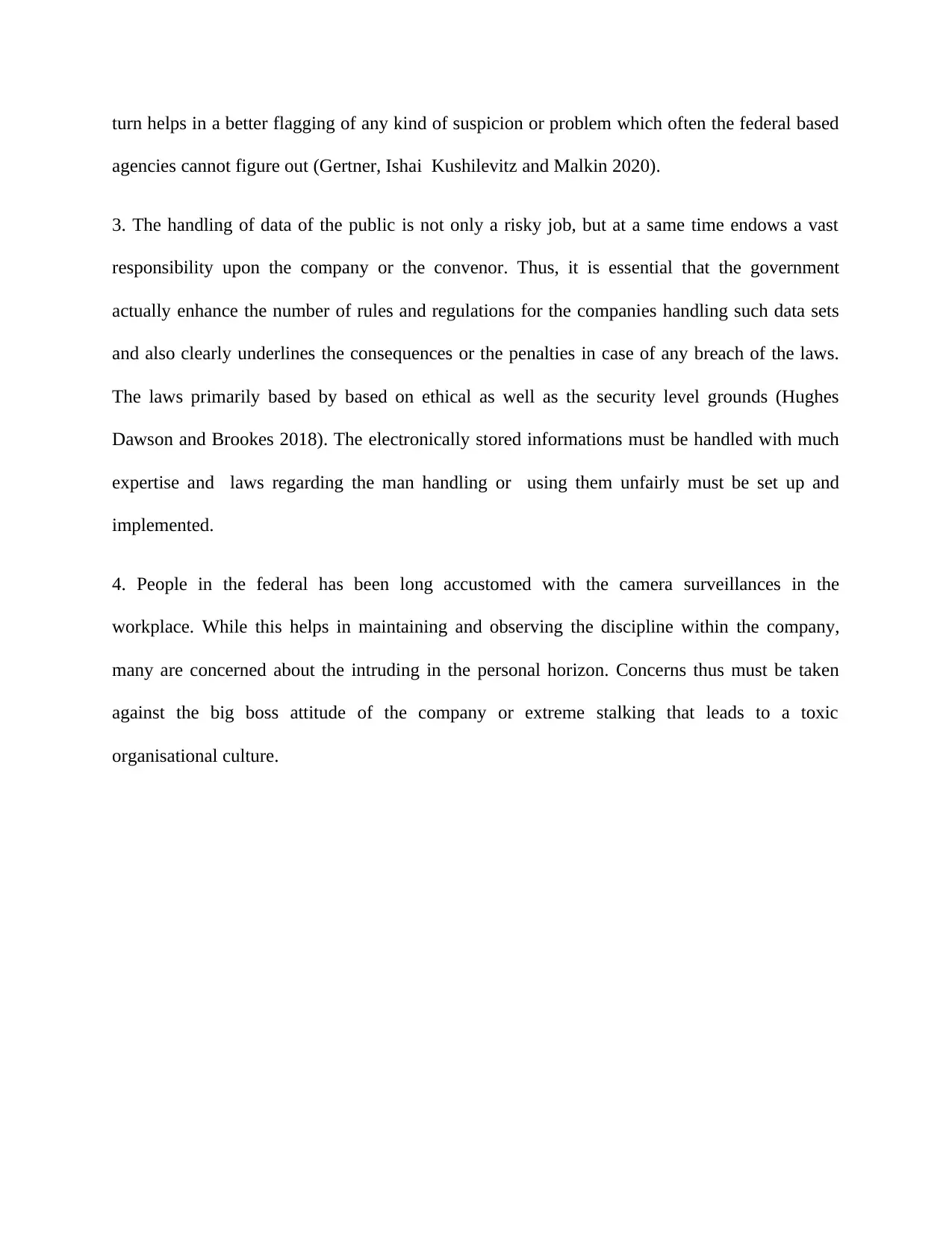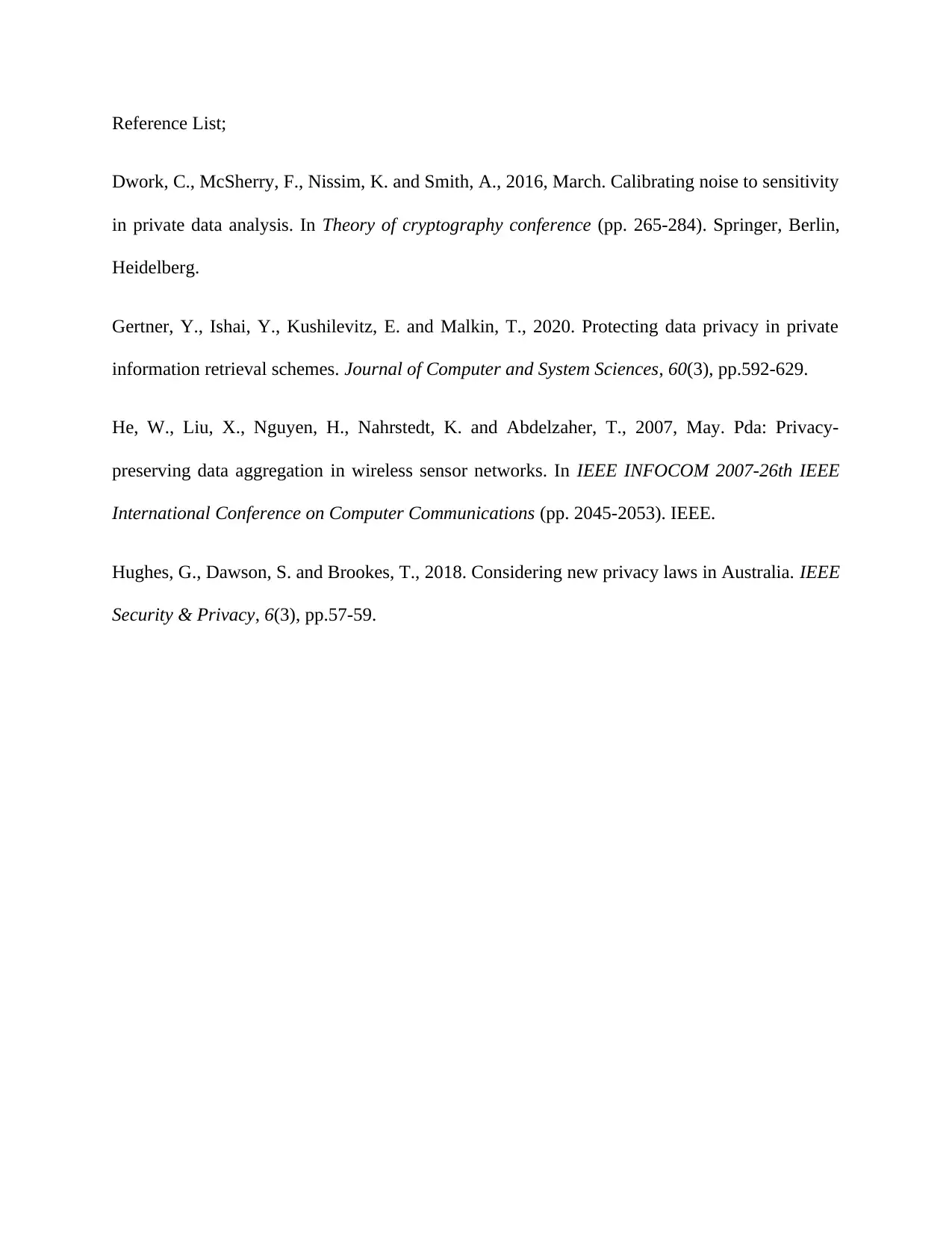University Report: Surveillance and Ethical Implications in AI
VerifiedAdded on 2022/09/26
|4
|800
|22
Report
AI Summary
This report delves into the ethical considerations surrounding surveillance in the context of artificial intelligence, focusing on the collection and management of personal data by organizations. It highlights the risks associated with data breaches and the importance of privacy policies. The report examines the outsourcing of digital surveillance to private companies, raising concerns about cyber protections and the potential for unethical data analysis. It emphasizes the need for stricter government regulations and penalties to protect public data, while also addressing workplace surveillance and its impact on employee privacy and organizational culture. The report references key concepts such as consumer profiling, e-discovery, and the capabilities of advanced surveillance technologies, offering insights into the ethical challenges and potential solutions within the field of AI and data privacy. The student's work provides a comprehensive overview of the ethical dilemmas posed by surveillance technologies and their implications for individuals and society, with a clear emphasis on the importance of responsible data handling and privacy protection. The report also includes a detailed reference list for further research.
1 out of 4









![[object Object]](/_next/static/media/star-bottom.7253800d.svg)